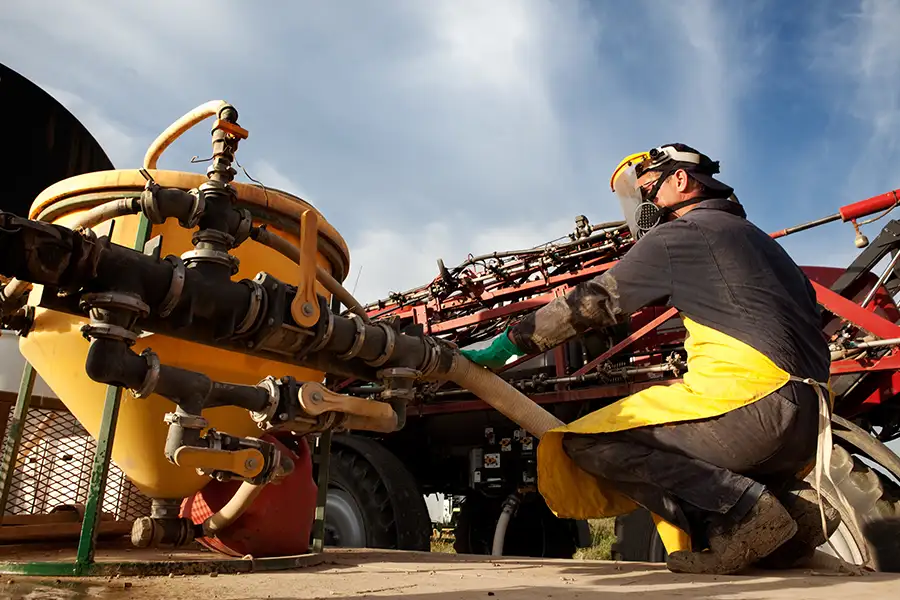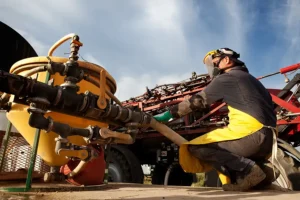Celebrating National Farm Safety and Health Week: September 15-21
September brings with it a special focus on an industry close to our hearts – agriculture. The week of September 15-21 is recognized as National Farm Safety and Health Week. As professionals in the field, it’s a time to reflect on our practices, enhance our knowledge, and prioritize safety measures. To honor this important observance, we’ve compiled a listicle of the top ten farm safety tips that every agriculture professional must know. So, let’s dive in and ensure a safer tomorrow for all!
- Protective Gear: Shield Yourself Farms are bustling environments where accidents can happen in the blink of an eye. Always wear appropriate protective gear such as gloves, goggles, helmets, and sturdy boots to safeguard yourself from potential hazards.
- Equipment Maintenance: Regular Checks Are Key Your farm equipment is the backbone of your operations. Ensure it functions smoothly by conducting regular maintenance checks. From tractors to power tools, timely inspections can prevent accidents and breakdowns.
- Chemical Safety: Handle with Care Pesticides and herbicides are essential for crop health but can pose risks to human health when mishandled. Store chemicals in designated areas, follow safety guidelines, and wear protective gear during application.
- Emergency Preparedness: Plan Ahead Accidents can occur despite all precautions. Have a well-thought-out emergency response plan in place. Train your team on first aid, emergency procedures, and make sure emergency contact numbers are easily accessible.
- Child Safety: Educate and Supervise Farms may seem like a playground to children, but the machinery and livestock pose serious dangers. Educate children about farm hazards, establish no-play zones, and supervise them at all times.
- Sun Protection: Shield against Harmful Rays Farm work often means long hours under the sun. Protect your skin by wearing sunscreen, hats, and appropriate clothing to prevent sunburns and long-term skin damage.
- Animal Handling: Gentle and Cautious Livestock are an integral part of many farms. Handle them with care, be aware of their behavior, and invest time in proper training to reduce the risk of accidents or injuries.
- Proper Lifting Techniques: Mind Your Back Farming involves a significant amount of manual labor. Protect your back from strains and injuries by using proper lifting techniques. Bend your knees, keep the load close to your body, and avoid sudden movements.
- Fire Safety: Stay Vigilant Farms, with their barns and storage facilities, are at risk of fires. Farm equipment such as combines also are exposed to fire risk. Ensure manufacturers maintenance and cleaning procedures are followed. Install fire extinguishers in key locations, conduct regular fire drills, and ensure all team members are well-versed in fire safety protocols.
- Mental Health Awareness: Prioritize Well-Being Farming can be stressful and isolating. Prioritize your mental health by taking breaks, seeking support when needed, and fostering a work environment that values mental well-being.
National Farm Safety and Health Week serves as a reminder that our well-being and the success of our operations are intertwined with safety practices. By following these top ten farm safety tips, we can create a workplace that is not only productive but also safe for everyone involved. Let’s commit to a culture of safety on our farms and ensure that each day begins and ends with the well-being of all professionals in mind.
Happy National Farm Safety and Health Week!
Note: The safety of every individual working in the agriculture sector is paramount. As we celebrate National Farm Safety and Health Week, let’s pledge to prioritize safety in all our undertakings.









